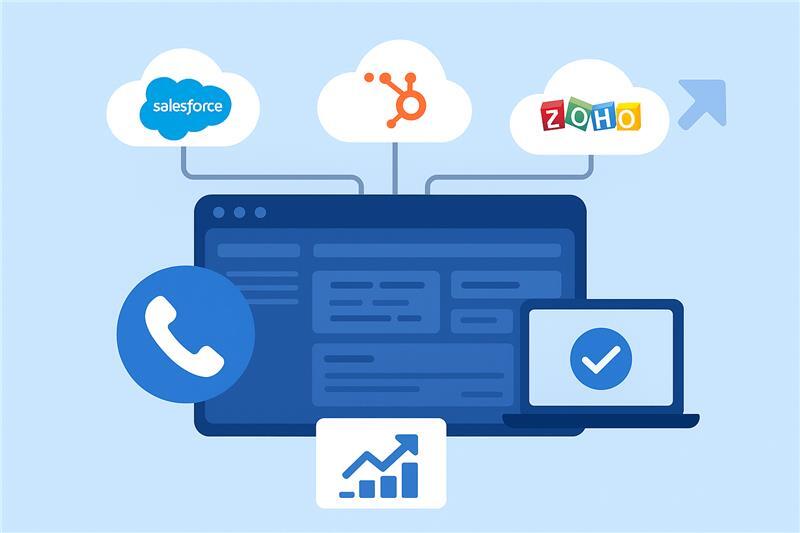
Sales Words That Win: 2025 Guide to Boosting Your Sales Strategy
In today’s competitive sales landscape,understanding sales vocabulary and the right words can make all the difference. Whether you're closing a deal, writing a cold email, or pitching to a high-value prospect, powerful sales words and strategic sales keywords can influence decisions, evoke emotions, and drive action. As we move through 2025, understanding the psychology behind these power keywords and sales terms and how to use them effectively can give your sales strategy a winning edge. In this guide, we’ll break down the most persuasive sales words that top-performing reps are using today, explore essential sales jargon and business power words, and how you can integrate them into your messaging to boost conversions and build lasting customer relationships

Power Words for Sales That Can Make or Break Deals
Understanding sales language and selling words and phrases is crucial for any sales executive looking to improve their performance. These sales buzzwords and power words in sales have been proven to increase engagement and drive results.
Build a Connection with Positive Sales Words
1. Client’s name
People are naturally attentive when you address them directly. Using the prospect’s name makes them feel that you are offering bespoke solutions. Research suggests that specific parts of our brain get activated when we hear our own name. Use the prospect’s name more often to close deals faster.a key technique every salesperson should master.
2. You
The best sales pitch phrases put the customers and their needs at the center of the conversation. Using the word ‘you’ repeatedly helps maintain intimacy and keeps them engaged.This is one of the fundamental words for sales success.
3. We
Emphasizing the word ‘we’ can help break down barriers and enhance cooperation. It lets prospects know that you have a mutually beneficial relationship.This collaborative approach is essential sales team jargon that builds trust.
4. Imagine
Power words for sales like ‘imagine’ can help you describe the benefits of your product/service while enabling prospects to visualize the bigger goals you can help them achieve. This visualization technique is a cornerstone of effective selling words.
5. Thank you
Whether during calls, in writing, or through actions, being polite sets you up for a friendlier relationship. Gratitude is among the most important power words for customer service and relationship building.
6. Welcome
Just as with ‘thank you', be generous in expressing your appreciation with ‘welcome’. Saying ‘you’re welcome’ is better than saying ‘no problem’.This positive language reinforces good sales vocabulary.
Words That Enhance Your Pitches
7. Value
Always find a way to contextualize your offerings according to the prospect’s needs. Personalization is key to doing business successfully in the new normal. According to a study, 80% of consumers are more likely to buy from a brand that provides personalized experiences.Value is one of the most important keywords for sales executive success.
8. Advantage/Benefit
‘Advantage’ and ‘benefit’ are sales buzzwords that reiterate your value proposition with clear reasoning as to why customers should opt for your offering over your competitor’s.These power sales words clearly communicate your unique selling proposition.
9. Help
There is no better way to build trust than by helping customers beyond the purchasing process. Be sure to deliver if you are called upon. This supportive approach is fundamental to understanding sales jargon and building relationships.
10. Do
Experts suggest that using positive sales words such as ‘do’ instead of ‘try’ will make you seem more capable and reliable, and inspire confidence in your product/service.This decisive language is part of effective sales language.
11. Amazing
Customers don’t want to settle for something good; they want to be wowed! Use power words for sales such as ‘amazing’, ‘remarkable’, and ‘wonderful’ when you can deliver on the expectation.These emotional sell words create excitement and desire.
Add Value with Strong Sales Words and Business Power Words
12. Tips
Additional information that can benefit customers will always get you brownie points. Use them wisely to add value without disclosing too much.
13. Avoid
When used appropriately, your pitch could give a positive spin to sales words that are generally considered negative. This word can let them know that you are there to help them minimize wastage, whether it is cost, time, or effort. It's an important concept in sales terms to know.
14. Proven
Sales words such as ‘proven’, ‘genuine’, ‘authentic’, and ‘endorsed’ can help build trust. With increasing competition, customers want to partner with a brand they can rely on. When you use the word ‘proven’, it tells the customer that your product or service is market-tested and effective. These credibility power keywords are essential for trust-building.
15. Safe
It is important to inspire confidence and credibility with strong sales words such as ‘safe’ and ‘secure’ to let prospects know they are in good hands.
Tactful Handling of Objections with Strategic Sales Phrases
16. Because
The conjunction allows you to bring customers’ focus to the reasoning or benefits for a particular offering, consciously connecting the two. And research suggests that people like to be given a reason or justification for things they are told.
17. Results
Using definitive words that sell like ‘results’, ‘guarantee’, or ‘authentic’ make customers feel comfortable investing in a product or service that seems likely to deliver on its promise.
Results-oriented language is key to effective sales vocabulary.
18. Or
This can be a subtle way to make the prospect see your point of view or present them with alternatives, multiplying your chances of cracking a deal. hoice-oriented language is important in sales phrases for closing.
19. Improved
Products/services must adapt to changing customer preferences and needs. Using the word 'improved' can help you highlight how the new version of your products is better than ever before.
20. I don’t know
Sales phrases like this show prospects that you are honest and not afraid of admitting that you don’t know everything. Follow this up with “I will let you know soon” to show that you are willing to help the prospect further.Honesty is crucial in understanding sales jargon and building credibility.
Sales Transition Phrases/Words
21. Fair
Humans have a natural desire to be perceived as fair and get what is fair. Make an offer or ask for something and follow it up with “Is that fair?”. When used 1.7x per deal, ‘Fair’ helps superstar sales reps move it forward to the next stage.
22. Remember
'Remember' is a very useful Power word for reconnecting with past leads, reiterating the main features of your offerings, or reminding prospects of past promises (such as to close a deal sooner, maybe).
23. And
Skillfully replace ‘but’ with ‘and’ when addressing a concern or criticism. ‘And’ when followed with the relevant information is one of the most useful sales transition phrases that bring inclusivity into your statements, even in scenarios where you may be disagreeing with the prospect.
Urgency Words for Sales Executive Success: Closing Deals Faster
24. Hurry
Provide your prospects with a limited time offer they cannot resist. If they seem convinced, ask them to hurry so they don’t miss a good deal.
25. Free
One of the most persuasive sales words, offering a part of the service or add-on benefit for ‘free’ can decrease the cost while increasing your offering’s perceived value.
26. Save
Everyone wants to save on money, time, or resources. Back it up with a clear opportunity, and you could get a customer on board for the long-term.
Sales Power Words That Move Prospects to Purchase
27. Exclusive
Sales buzzwords such as ‘exclusive’, ‘rare’, or ‘limited edition’ create the impression that your offering is unique and available only to a select few.Exclusivity language is powerful in another word for sales - relationship building.
28. First
This is another word that denotes exclusivity or brings in the wow factor. If you can deliver on the first-mover advantage, you can build a long-lasting relationship with customers.
29. Successful
Top performers use ‘successful’ 4-6x per hour on a sales call. Follow their success mantra and close deals faster!
30. Simple/Easy
From onboarding customers, using your product/service, and getting adequate support – if you can simplify the customer experience, they may be more willing to sign up with you.
31. Premium
Sales words that denote luxury and prestige help grab attention. Customers respond to concepts of high esteem, value, and quality as it makes them feel privileged. Premium positioning is important in business power words strategy.
32. Confidential
Strong sales words such as ‘confidential’, ‘secret’, or ‘insider’ tap into natural human curiosity and serve to intrigue prospects. You can use these sales words to pique their interest and genuinely engage them.
33. Risk-free
This term acts as an assurance for customers to know that they are not going to lose anything, especially when they are signing up for a free demo or trial.
Those were some of the most powerful words to sell a product.
Words to Avoid During Sales Calls: Rejection Words in Sales and Negative Sales Jargon
Understanding what words to avoid in sales is just as important as knowing the right sales keywords list. Here are critical sales words to avoid:
%2525252520(1).jpeg)
34. We provide
Prospects anticipate a sales pitch and stop listening the moment you say, ‘we provide’. Close rates fall by 22% when sales reps use it four or more times in a single call.
35. Problem
Hearing the word ‘problem’ immediately incites a negative reaction. When referring to an issue that the customer may face, use ‘challenge’ or ‘hurdle’ instead. This is a key rejection word in sales to avoid.
36. Honestly
Although a positive-sounding word, ‘honestly’ can have a negative connotation in a sales language. When overused, this word could make the prospect feel like everything else you have said before may not be true.
37. Hopefully/Maybe
These words are vague and do not instill confidence. They indicate that you are unsure of what you are saying or promising. If you are not confident of your product/service’s benefits, why would prospects be?
38. Discount
Don’t offer a 33% discount; instead, offer 50% more of the same product at the same price! Discounts devalue your products and can decrease your chances of closing a deal by 17%.
39. Obviously
‘Obviously’ sounds condescending. It sounds like you are undermining the client’s intelligence by stating the obvious.
40. Cheap
Using ‘cheap’ undervalues your offering. It gives the feeling that your product or service is substandard. Say ‘cost-effective’ or ‘economical’ instead. Value language is crucial in power words for sales.
41. Free Trial
Substitute ‘free trial’ with ‘demo’ or ‘pilot’ if you are not looking to lower your chances of moving to the next stage by 5%.
42. Competitor
It is best not to bring up competitors unless the prospect does so. Putting down your competitors reflects poorly on you and your company. Instead, talk about how your offerings are at par with industry standards and how you can exceed their expectations.
43. Quota
Never mention that you are doing the job for incentives or fulfilling your quota. It can make prospects think you are only trying to close a deal even if it’s not a good fit for them.
44. Objections
When addressing queries from prospects, avoid categorizing them as objections. Call it a ‘concern’ or ‘challenge’ and show them that you are willing to address any issues.
45. Prospects
Do not refer to your prospects as ‘prospects’. You will immediately make them feel dehumanized and disconnected.
46. Perfect
Is it okay to reinforce how ‘perfect’ everything about your deal is? When used more than four times during a call, the advance rate drops by 16%.
47. Pitch
Even though you are technically pitching to your prospect, it is a very salesy term that implies you are there to sell a product instead of helping them find the right solutions. Say ‘presentation’ or ‘discussion’ instead.
48. Cutting-edge/Innovative
These are some of the most overused sales words, as every company tries to position itself as cutting-edge or innovative.
49. Erm
Constantly making sounds such as ‘erm’, ‘ah’, or ‘uhh’ make prospects feel you have not come prepared. They also make you sound unprofessional and unsure.
50. Don’t
‘Don’t’ is negative. No one likes to hear what they should not do. Instead, tell them what they should do.
51. But
When you make a positive statement, using ‘but’ means you are contradicting what you said previously. This creates dissonance in the prospect’s mind.
52. Show you how
Spend more time on ‘why’ rather than ‘how’ something works. If you use such sales phrases more than four times in a call, your close rate may drop by 13%.
Salesken’s Guide to Winning Words Sales Keywords and Power Sales Words
Salesken is a tool that uses Artificial Intelligence to identify meaning and emotion reflected by words that are spoken during sales calls. It then uses this data to help reps say the right words or avoid using the wrong ones – in real-time! You can even manually feed these words into Salesken, so it can help your reps have more powerful sales conversations and win more deals.
Salesken also provides sales leaders like you with post-call analytics to track your sales team’s performance. Salesken records and annotates sales calls so you can quickly navigate through them with ease. You can tie it back to sales people wanting to close deals as they can earn over $300,000 per year, as evidenced by sales salary site CompGauge, ‘Fair’ helps superstar sales reps move it forward to the next stage.
What’s more, in addition to metrics such as the number of calls or talk ratio, Salesken lets you see if your sales team is using the right words and how often, whether they are saying anything wrong to your prospects, and how they can improve their performance.
Click here to see how you too can build a high-performing sales team with Salesken.
Frequently Asked Questions (FAQ)
1. What are sales terminologies?
Sales terminologies are specific Power terms used in the sales industry, such as “lead”, “prospect”, “pipeline”, and “conversion”.
2. What are power words in sales?
Power words in sales are persuasive words that trigger a psychological response, like “exclusive”, “guarantee”, or “value”.
3. Where can we use sales words, B2C or B2B?
Sales words can be used in both B2B (Business-to-Business) and B2C (Business-to-Consumer) contexts, with the language often being more formal and technical in B2B, and more casual and personal in B2C.
4. How can I incorporate sales words into my sales pitches?
You can incorporate sales words into your pitches by strategically choosing words that resonate with your target audience and highlight the benefits of your product or service.
5. Can sales words help improve my sales performance?
Yes, using the right sales words can definitely help improve your sales performance by making your pitches more persuasive and compelling. By choosing words that resonate with your audience and highlight the value of your offering, you can increase engagement, generate more leads, and ultimately close more deals.

.png)

